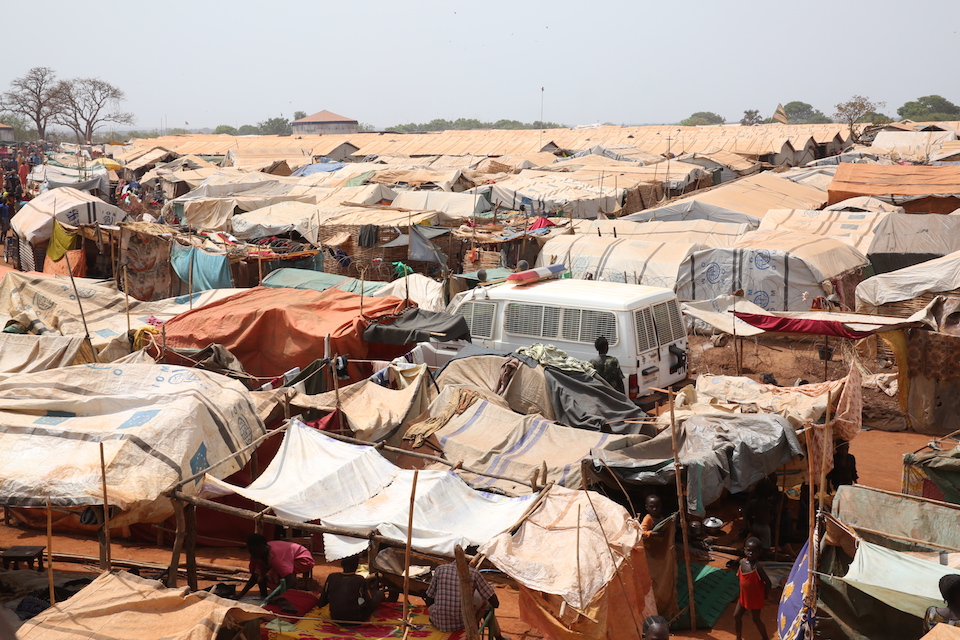"Make no mistake, this is a crisis of human creation; a crisis that South Sudan’s leaders have had six years to prevent."
Statement by Ambassador Matthew Rycroft, UK Permanent Representative to the United Nations, in Security Council meeting on the situation in Sudan and South Sudan.

Thank you Mr President, thank you Assistant-Secretary-General Wane, thank you President Mogae for your briefings. And let me take this opportunity to reiterate the United Kingdom’s full support for your work, and for the UN Mission in South Sudan.
I wouldn’t normally take the floor before consultations but the horrifying and entrenched situation in South Sudan compels me to speak out.
Two weeks ago, the people of South Sudan should have been celebrating their young country’s independence day. They should have been celebrating six years of progress; six years of a country learning to stand on its own two feet.
But six years on, South Sudan isn’t standing. It’s barely even crawling; stifled by its leaders who would rather serve their own ends than help their country. Six years of their rule has left over half the population without enough food, six million people dependent on humanitarian assistance just to survive.
Make no mistake, this is a crisis of human creation; a crisis that South Sudan’s leaders have had six years to prevent.
But instead of helping, they have poured fuel on the fire. We need only look at the ongoing fighting across the country by the government and opposition forces. In Pagak, for example, the government offensive there has displaced thousands of civilians into Ethiopia. Aid workers have been evacuated, the already desperate humanitarian situation has been made even worse.
And yet when the government are asked about Pagak, we hear different stories from different people: some say there has been no violence there; others argue that the offensive was for self defence. So let’s be clear, the violence is happening there and it is not self defence; it is a blatant infringement of the ceasefire that Kiir declared only a few months ago.
Not content with misleading their people and the international community, the government of South Sudan have systematically clamped down on the media and on access to information. Last Friday, internet service providers in South Sudan were ordered to block media outlets with which the government disagreed. The head of state television was reported to have been arrested for failing to broadcast President Kiir’s Independence Day speech. The government say they are committed to media freedom, but their actions speak otherwise.
What the government of South Sudan says bears no relation to what it does. In June we saw humanitarian access being blocked a hundred times; the highest month in 2017 so far. In addition, ceasefire monitors have been blocked on multiple occasions by government troops from investigating incidents of reported violence. This is all in clear violation of the peace agreement and all at the cost of the South Sudanese people.
Until we see the government’s actions match their words, this Council has no choice but to take measures to protect peace and security. For the United Kingdom, that means returning to the issue of an arms embargo on South Sudan once again. We must do all we can to stop the uncontrolled flow of weapons that is driving this violence.
In parallel, we should continue to work with IGAD to support their Revitalisation Forum Initiative. The first priority for this must be to bring an end to the fighting. This will require a negotiated ceasefire or cessation of hostilities agreement amongst a broad and meaningful range of armed actors. It will require national and local initiatives. And we must be clear that any actors blocking peace will face consequences.
But in truth, Mr President, we have said all of this before. In this Chamber back in May I said that we were not yet fulfilling our responsibilities as a Council to the people of South Sudan. Two months on that, I’m afraid, is still the case. The parties continue to put violence before peace.
This cannot continue. We have a unique window of opportunity before the end of the rainy season to make meaningful progress in South Sudan. Should we fail in our efforts, South Sudan will enter into a fifth year of conflict. And for a country that is only six years old, that is simply heartbreaking.
Thank you Mr President.